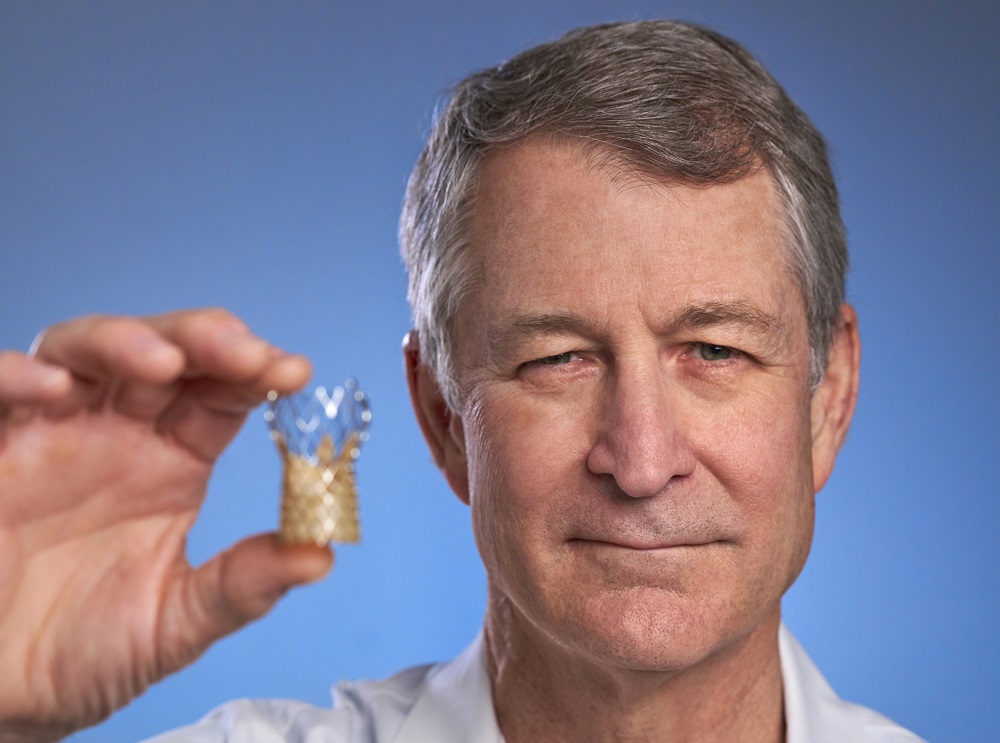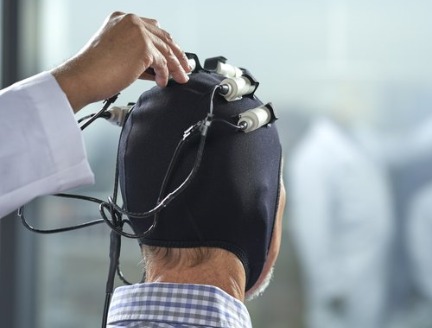


Clinical Research
The Heart of Progress
Innovative valves create a legacy for the future

A study by Michael Reardon, MD, of Houston Methodist's DeBakey Heart & Vascular Center, established minimally invasive valve replacement as the new standard of care.
Houston Methodist is at the forefront of history…again. The cover of April’s Cardiology News proclaimed “Historic Moment: Two trials crown TAVR over surgery” and featured Houston Methodist heart surgeon Michael Reardon, MD, speaking to an audience of thousands of cardiologists at the American College of Cardiology conference. He was sharing results of a highly acclaimed study in The New England Journal of Medicine.
The study, which compared outcomes for transcatheter aortic valve replacement (TAVR) with those of open heart surgery, indicated that the minimally invasive procedure—initially used to help high-risk, older patients avoid open heart surgery—also offers a safer option for lower-risk, younger patients. TAVR is now poised to become the new normal, pending FDA approval of the procedure for low-risk patients.
Transcatheter aortic valve replacement is expected to become the new standard within a few years. At that point, procedures will probably increase from 60,000 to 100,000 in the U.S. annually.
Michael J. Reardon, MD
Allison Family Distinguished Chair of Cardiovascular Research
Professor of Cardiovascular Surgery
DeBakey Heart & Vascular Center
Houston Methodist

More than 1,400 patients in seven countries were enrolled in the study, which used a Medtronic valve for the procedures. Results included the rate of death or stroke after 30 days (0.8% for TAVR compared to 2.6% for surgery) and after two years (5.3% for TAVR compared to 6.7% for surgery). Additionally, most patients can return home within 48 hours, with recovery taking about a week. Traditional open heart surgery often requires weeks, or months, to recover.
Popma JJ, Deeb GM, Yakubov SJ, Mumtaz M, Gada, H, O’Hair D, Bajwa T, Heiser JC, Merhi W, Kleiman NS, Askew J, Sorajja P, Rovin J, Chetcuti SJ, Adams DH, Teirstein PS, Zorn GL, Forrest JK, Tchétché D, Resar J, Walton A, Piazza N, Ramlawi B, Robinson N, Petrossian G, Gleason TG, Oh JK, Boulware MJ, Qiao H, Mugglin AS, Reardon MJ. Transcatheter Aortic-Valve Replacement with a Self-Expanding Valve in Low-Risk Patients. New England Journal of Medicine: March 16 2019. DOI: 10.1056/NEJMoa1816885
LaVonne Carlson, August 2019







